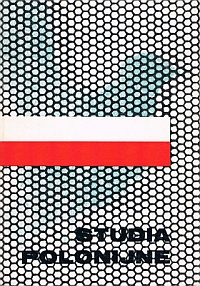Evolution of the Polish Parish in the North of France
Main Article Content
Abstract
Owing to social policy of the French mining authorities closely knit Polish settlements were set up in the North of France (Nord and Pas-de-Calais) after the First World War. Neighbouring villages of Ostricourt (Nord), Libercourt (Pas-de- Calais), Oiginies (Pas-de-Calais) and Carviin (Pas-de-Calais) are a typical instance of the origin and development of a Polish mining settlement and parish. C. 13,000 persons settled there, including 45 per cent Of arrivals from Westphalia.
Societies and clubs of various kinds, cultural, sport’s, religious and others usually flourished in Polish settlements, particularly between the two World Wars. They ministered to the spiritual needs of Poles and represented Polish culture and folklore in France. Thus they could antagonize the adverse effects of social isolation and denationalization as well as help effectively in the integrating processes.
It is necessary to stress the particular features of social and religious life in Polish settlements. In spite of all the changes, for the past 50 years they have been able to preserve the individual forms of religious activities, traditions and customs typical of Polish religious culture and concerning family, community and social life. There is also a strong belief in the educational value of Christian moral ideas cultivated by younger generations. As at the beginning also at present the social life centres round the Polish Church. Unlike French parishioners living in the same area, the Poles tend to keep up traditional forms of worship. E.g. during the past 50 years there has been a visible decrease in religious practices but they are still more popular than among the French. The second and third generations seem to be completely integrated into the French society as far as social, economic or cultural life is concerned. Yet they live a separate religious life.

